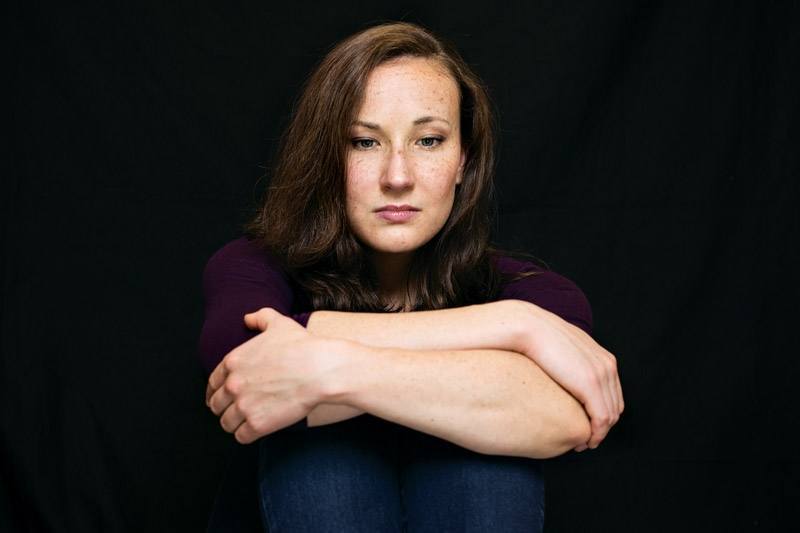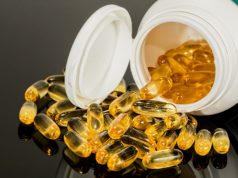In 2010 Doctors diagnosed college athlete, Bailey O’Brien with terminal cancer, but her parents refused to accept this death sentence.
Bailey O’Brien’s oncologist at NYU Hospital told her that Bailey had seven months to live. 20 years old, successful senior in college and she had already been diagnosed with melanoma cancer in the year 2007. She thought it was over. Only to see it come back two years later, even stronger than before: a total of seven tumors, some weren’t able to be operated on.
“It was a death sentence,” Bailey said frankly. But she and her parents, Rebecca and James, never gave up. They fought, using all weapons they could, whether or not the FDA or even her own doctors didn’t approve.
Bailey’s eight-year “cancer journey,” as she calls it, started when she was 17. “Freckled and fair, with long brown hair and expressive hazel eyes,” a former varsity gymnast, now a springboard diver at Putnam Valley High School, earning a partial scholarship to Boston University. Early on at BU, she noticed a weird spot on her temple. “It was a dark freckle that had a pinkish bump under it,” she said. “I thought it was a pimple, but it wouldn’t go away.”
that had a pinkish bump under it,” she said. “I thought it was a pimple, but it wouldn’t go away.”
A biopsy that was taken after Thanksgiving came back as “highly suspicious” for melanoma cancer. Surgeons at NewYork-Presbyterian Hospital removed 45 lymph nodes directly from Bailey’s neck, a small portion of her salivary glands, and even a swath of facial skin around her temple. After receiving over a month of Interferon treatments she went back to school and back to competition diving. As a junior, she had a personal-best season, making the podium in both 1- and 3-meter springboard at the 2010 America East Championship. She was embarking on her senior year, “feeling as strong as I’ve ever been,” she said, when a routine follow-up scan showed that the cancer had returned in her jaw. The first surgery didn’t get the tumor, and a mass was found behind her ear and biopsied. The doctors got the tumor and the mass in a second surgery, along with a wide margin of skin and tissue, as well as some bone from her skull. The next day, Bailey looked in the mirror and saw that the bottom half of her right ear was gone. “It wrecked me,” she said.
After an entire month of radiation and struggling and fighting, Bailey traveled with her diving team for training in Hawaii before coming back to BU. Only two months after her second surgery, she felt an odd bump on the bottom of her chin while she was putting on sunscreen. A CT scan showed seven tumors in her spine, neck, and lung. An almost impossible deficit to overcome, ALMOST… Her mom and sister went up to her dorm to tell her the bad news.
“I didn’t expect it at all,” Bailey said. “I broke down. I felt like I was trapped, thinking about if I might be able to survive. Everything ended with me dead.”
Back home, Bailey started on a chemo drug called Temodar. With help from a family friend who was studied in holistic medicine, Bailey’s mom decided to study alternative ways of curing cancer. One of them is Coley’s Vaccine, also called Coley’s Toxins, which was invented in the late 19th century by a cancer surgeon by the name of William Coley. The fluid contains bacteria and toxins that actually infect the body and cause a fever. This in turn stimulates the immune system to fight malicious tumors.
In 1966 the American Cancer Society put it in the “unproven method” box and never touched it again…
Chances of getting Coley’s Vaccine in the US were between slim and none after that.
No one knew if it was possible for Bailey to recover or even survive after this…
But there was a ray of hope. A Mexican hospital,The Centro Hospitalario Internacional del Pacifico S.A., or CHIPSA may have answer…
CHIPSA is a cancer research hospital in Tijuana and it specializes in alternative methods of curing cancer, including Coley’s vaccine, Gerson Therapy and other integrative treatments. They boast a 60 percent success rate of end-stage melanoma patients who followed CHIPSA’s treatment live at least five years more. Many live entire lives after. This was Bailey’s last hope.
In the February of 2011, Bailey took what she says was “the biggest leap of faith of my life,” Bailey and her mother flew to Tijuana.
For a long three weeks at CHIPSA, they shared a small room and Bailey did the hospital’s protocol. Following the Gerson Therapy, a low-sodium organic diet that regenerates the body’s healing process by giving a helping-hand to the immune system and taking away any deficiencies in nutrients. She drank enough fruit and vegetable juices to to feed a giraffe! At least eight ounces of fruit and vegetable juices every hour, for an average of 15 a day. She was given vitamin C drips and was given Laetrile, a controversial but effective treatment which comes from apricot pits; three coffee enemas a day; and regular doses of Coley’s Vaccine. She was given an Issels Autologous vaccine that was taken directly from her own white blood cells which that contained antigens that boosted her immune system into a regenerative state.
“It was hard work,” she says, but her diving training served her extremely well: “In sports, you’re always working towards something. I was working toward getting better. I had an amazing support group—family and teammates who were always there for me.”
When Bailey left Mexico, the lump beneath her chin had disappeared.
She continued the CHIPSA protocol for three weeks, until her next scan. At the follow-up appointment at Sloan Kettering, she and Rebecca were on the edge of their seats for the results. After what seemed like an interminable wait, the doctor came in and, looking at the floor, told Bailey she “no longer needed his services. According to the scans, it looked like all the tumors were gone.”
Cancer-free five years after her terminal diagnosis, former high school athlete Bailey O‘Brien is active in her church, volunteers her time at local elementary schools, and is planning to embark on a career as a certified health coach.
The next day was Bailey’s 21st birthday. She celebrated with a sip of sangria at an organic restaurant in Manhattan with her family.
Bailey no longer has to see her oncologist or gets scans, though she still takes Coley’s Vaccine about once a month at home. She’s passed the three-year threshold for recurrence; after five years, CHIPSA will consider her completely cured of cancer. It will be five years in March.
Bailey resides with her parents in Putnam Valley and spends lots of time in Peekskill, going to a local church and kickboxing class, also hanging out at The Peekskill Coffee House. She is very strict about her diet, avoiding anything that isn’t organic and she limits her salt and sugar. She doesn’t drink or eat from plastic bottles or containers, determined to get rid of toxic substances that probably caused the cancer in the first place, she says, “For me, living dangerously is ordering something off a menu without asking what’s in it.”
“I felt some survivor’s remorse when I healed,” she said. “A friend’s mom passed away from lung cancer when I was in Mexico. I began to ask myself: Why did I get a second chance and others didn’t? That’s when my spiritual yearning started. I wanted to know the purpose of my life. I wanted to know if God was real, because I’d prayed for a miracle. Some people call it a miracle; some people call it science. I think God gave me the resources to be healed.”
Bailey is doing all she can with her life. Writing a memoir and planning to start her new career as a certified health coach in the spring. She’s also extremely active at Peekskill’s First Baptist Church and volunteers for The Good News Club, one of the churches after school programs for the local elementary schools. She babysits her two nephews whenever she can… They were a huge inspiration for her comeback: “They bring me so much joy. I didn’t have a lot of joy in my life before I had cancer. Life was not really exciting to me. I looked at people who were happy, and I thought they were weird. What’s there to be happy about? But now I’m happy most days. My message as a speaker is about being grateful for life. Instead of thinking life is a burden, be grateful for the day, because so many people don’t get that chance.”
For more information on Chipsa Hospital and the treatments Bailey used offer please visit them here: https://chipsahospital.org/


























